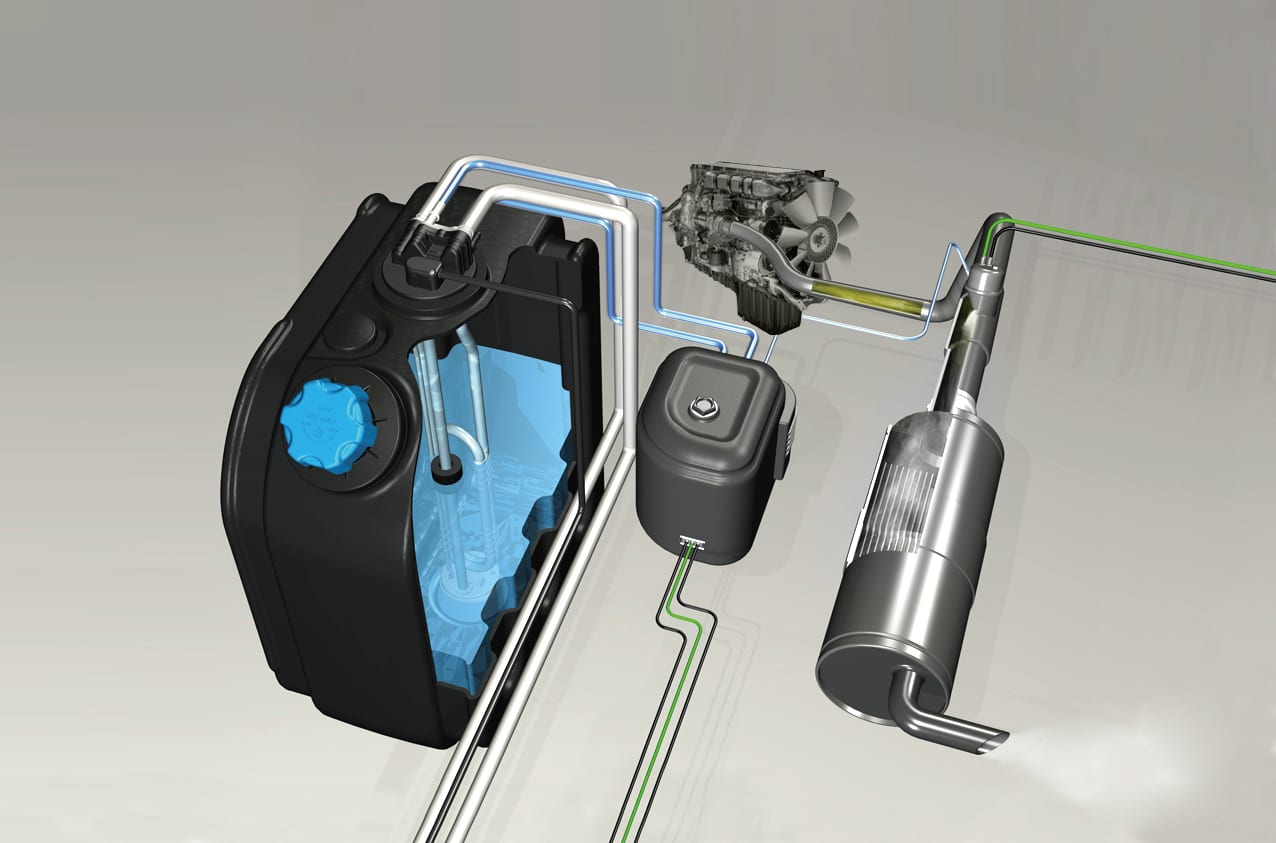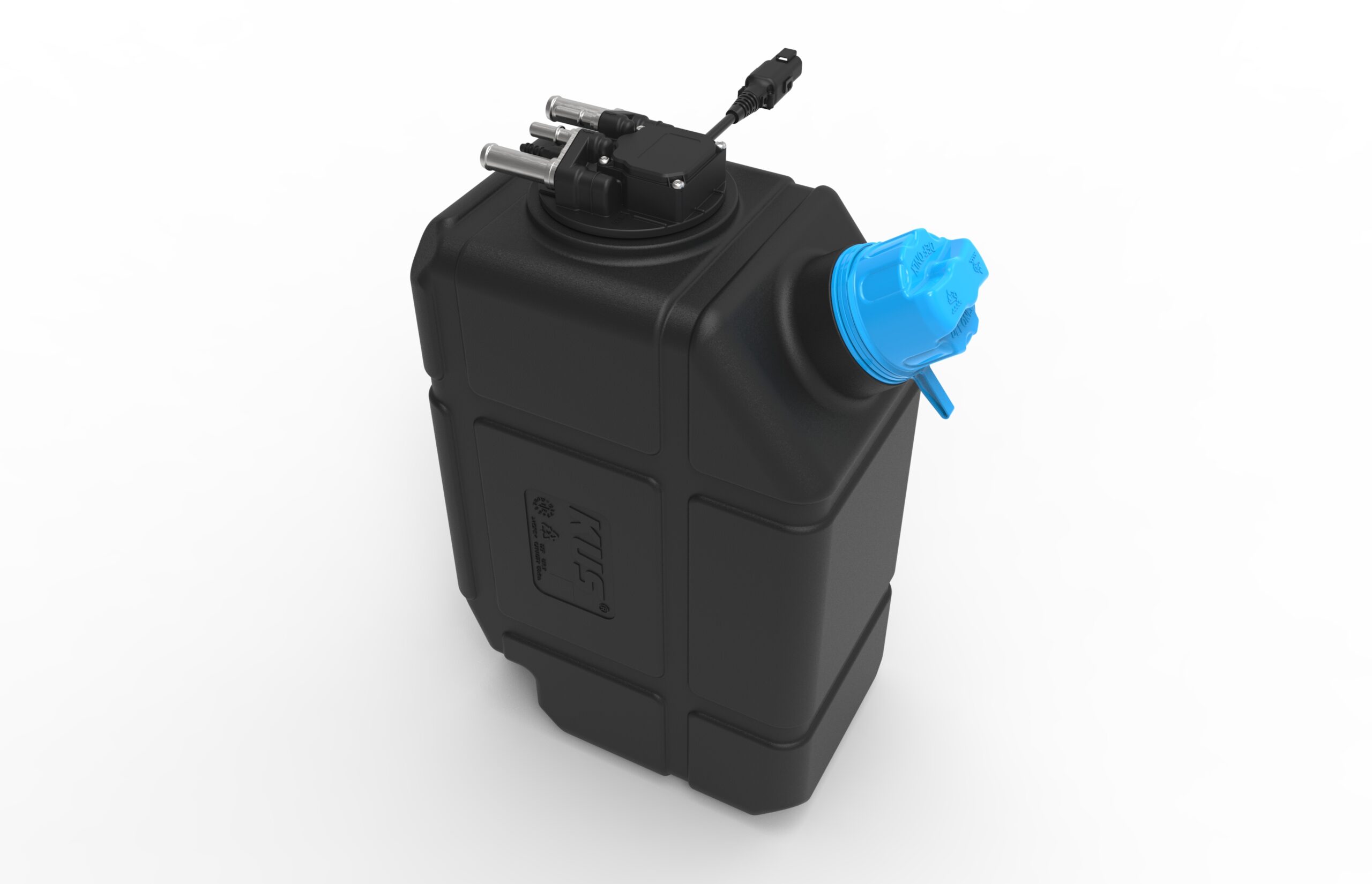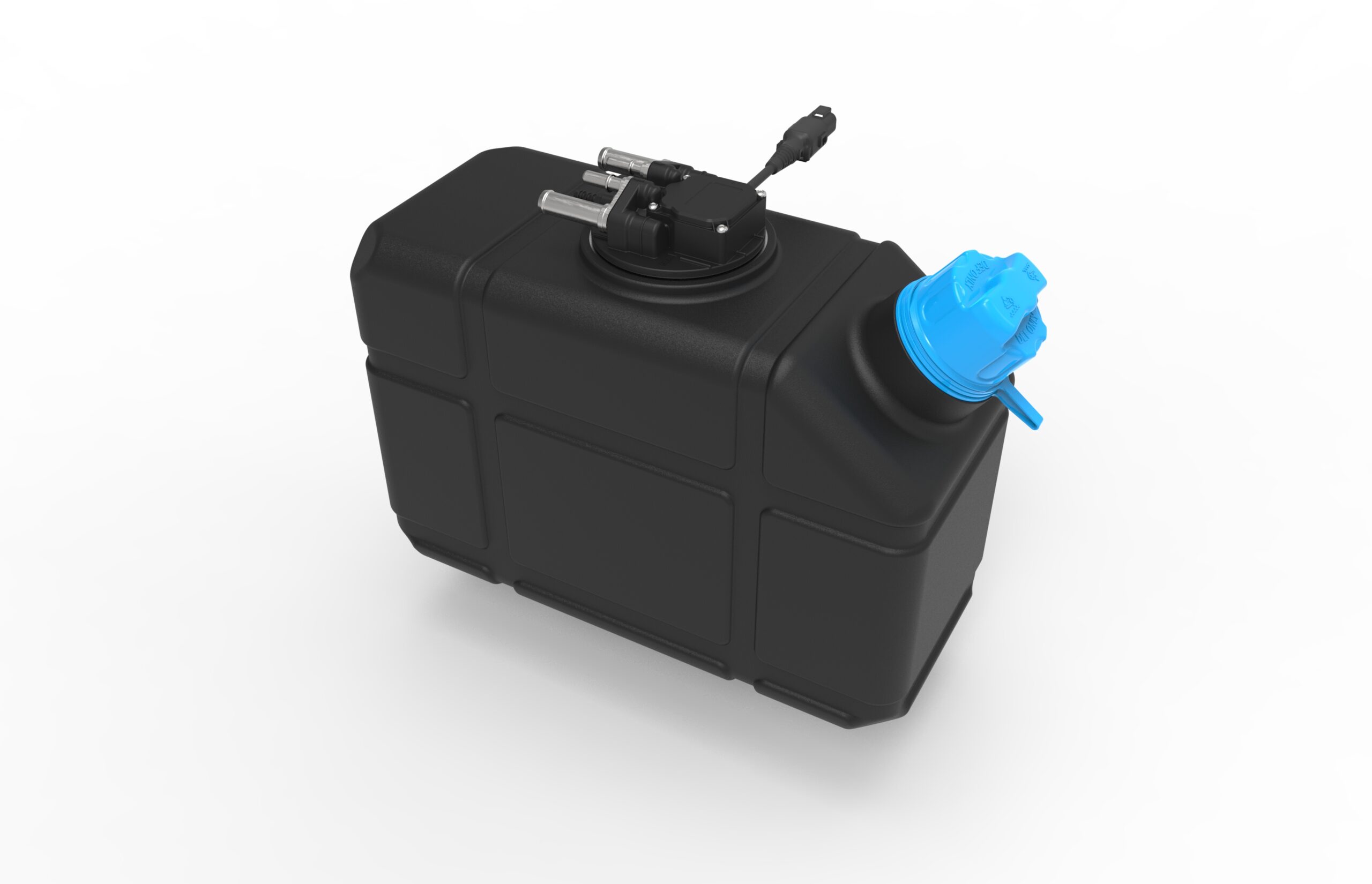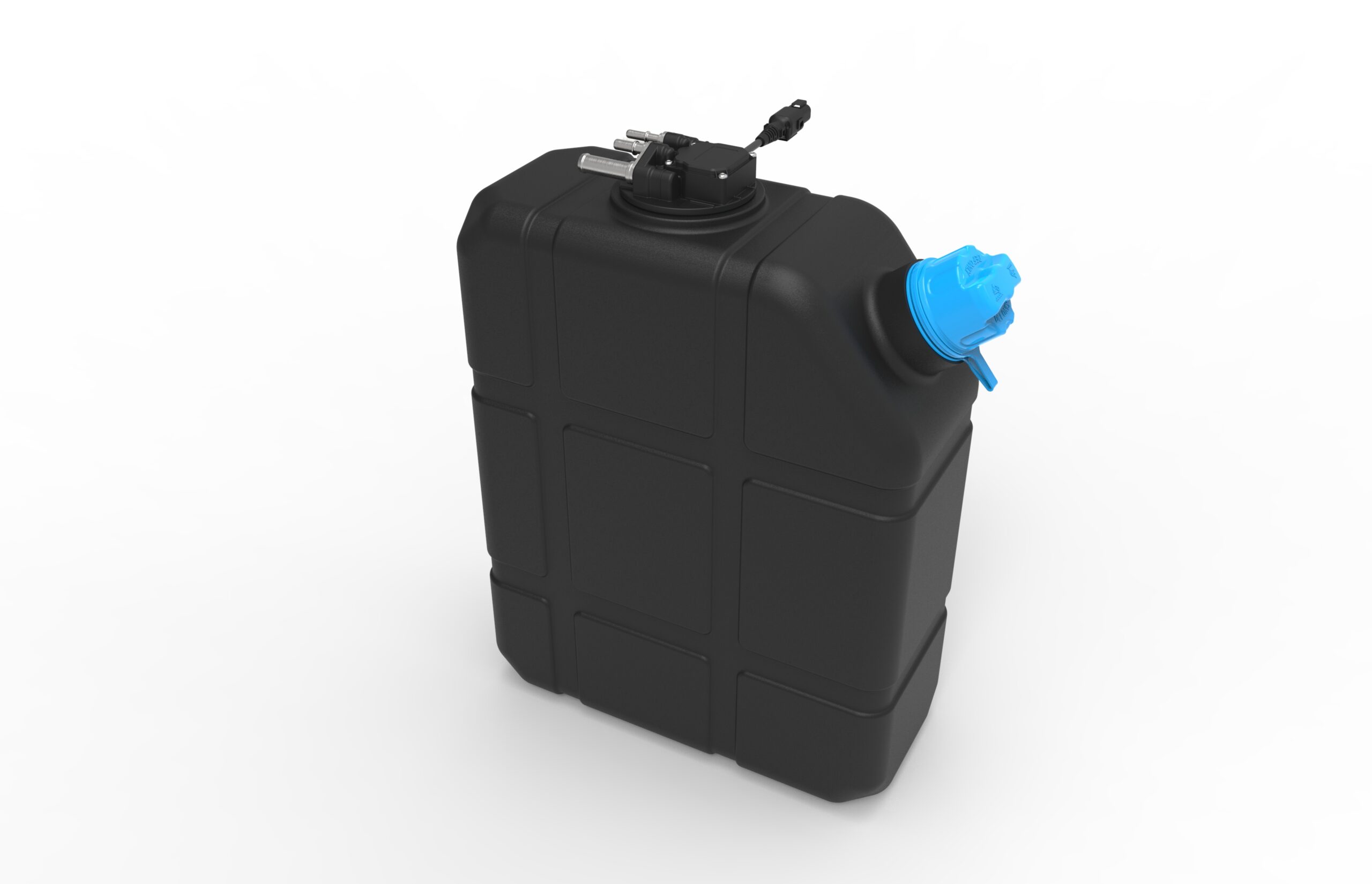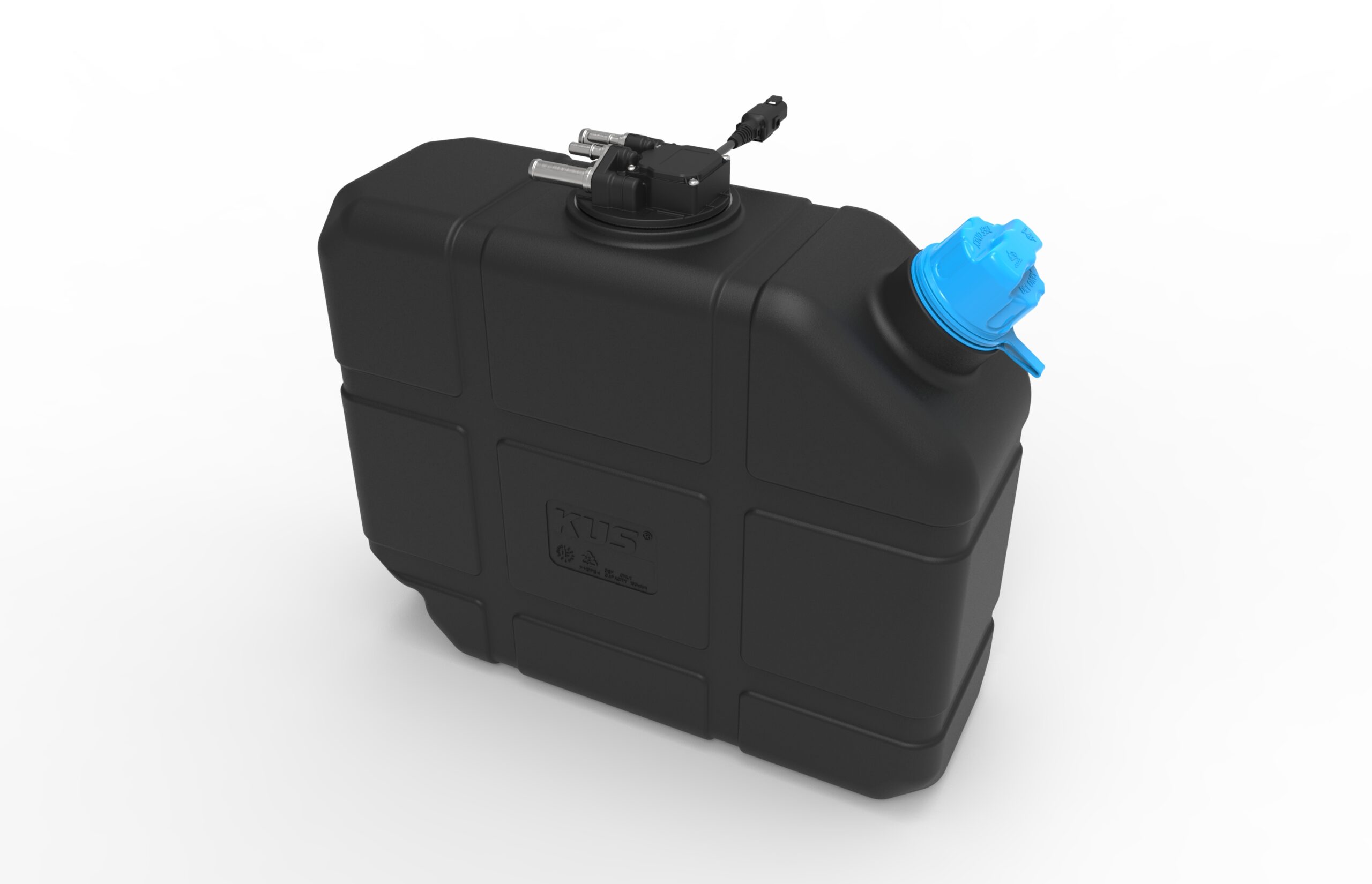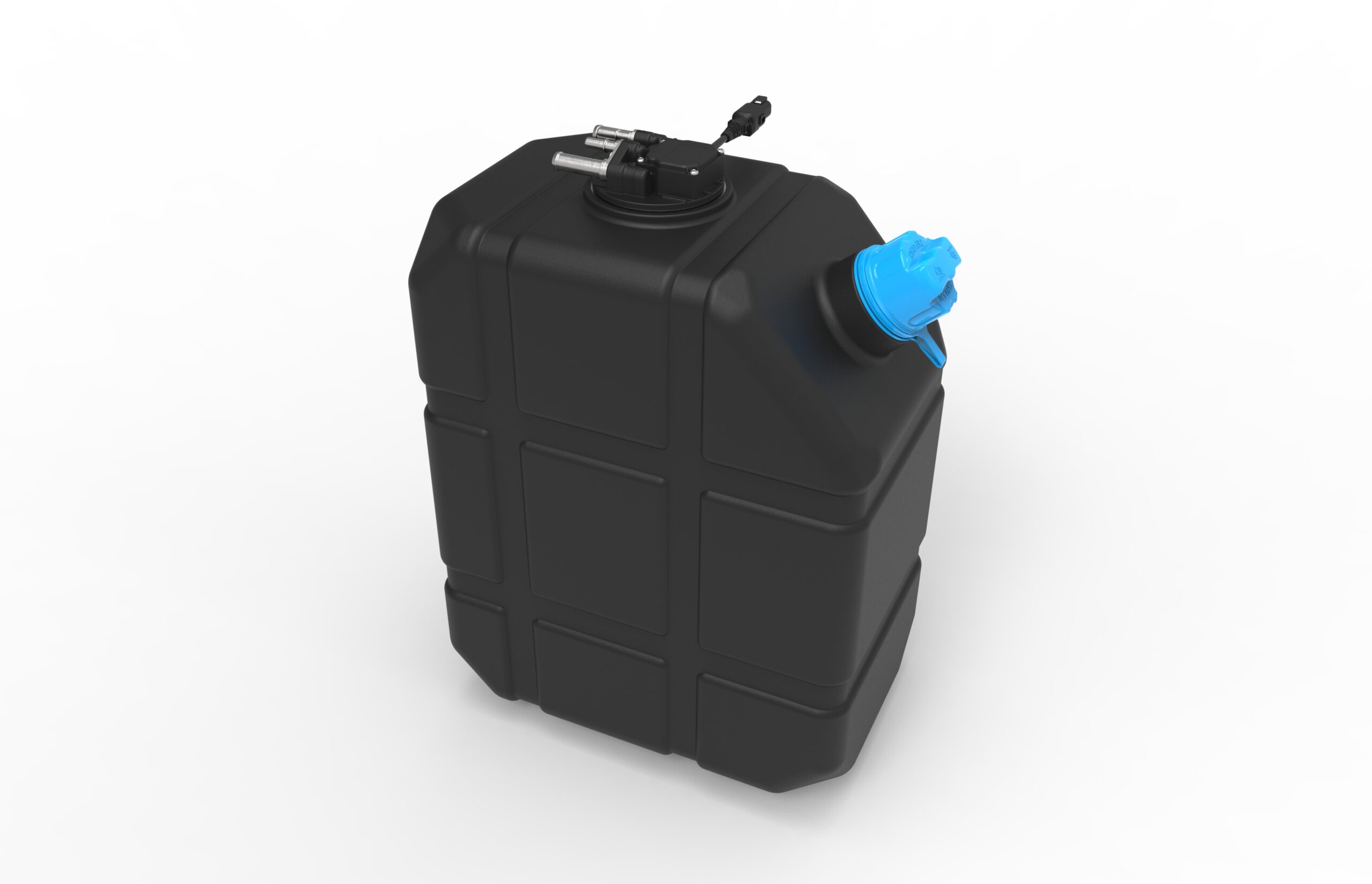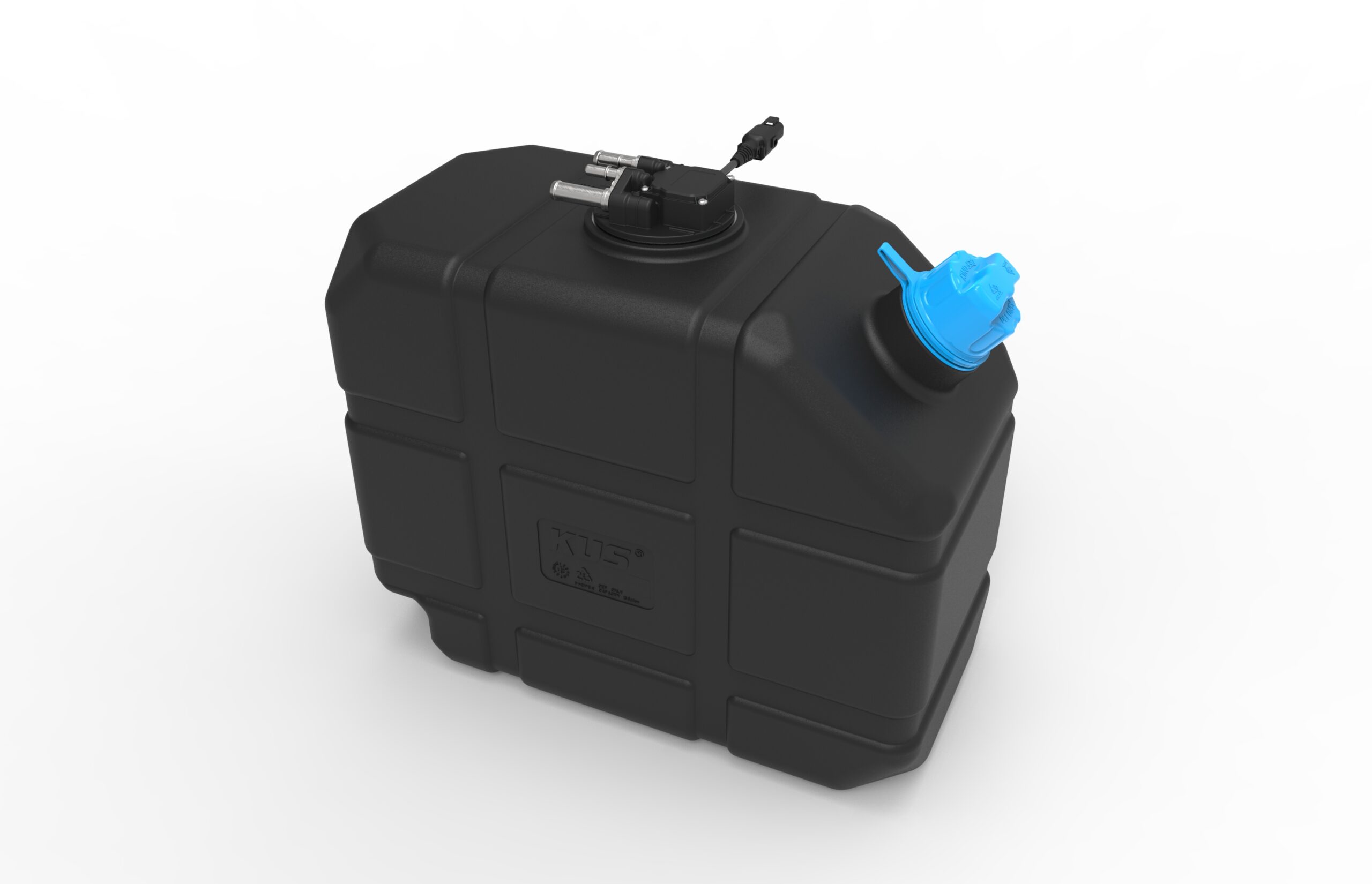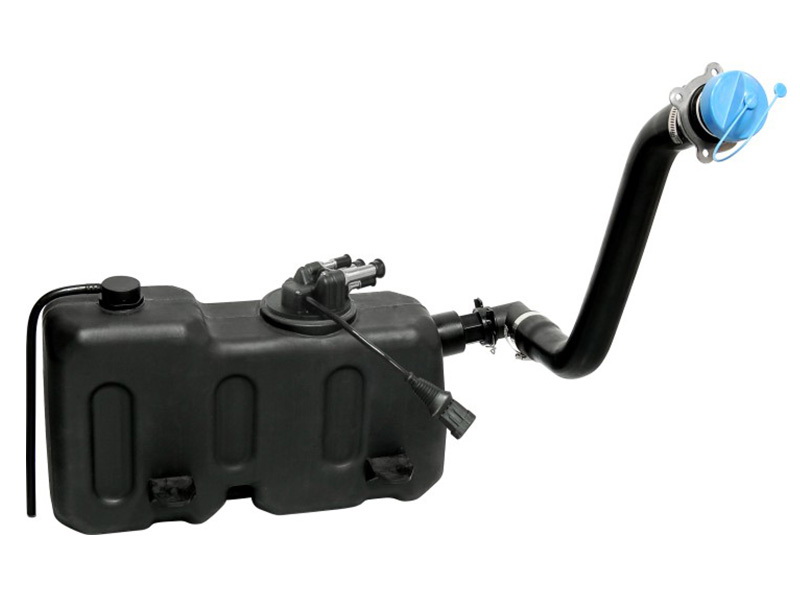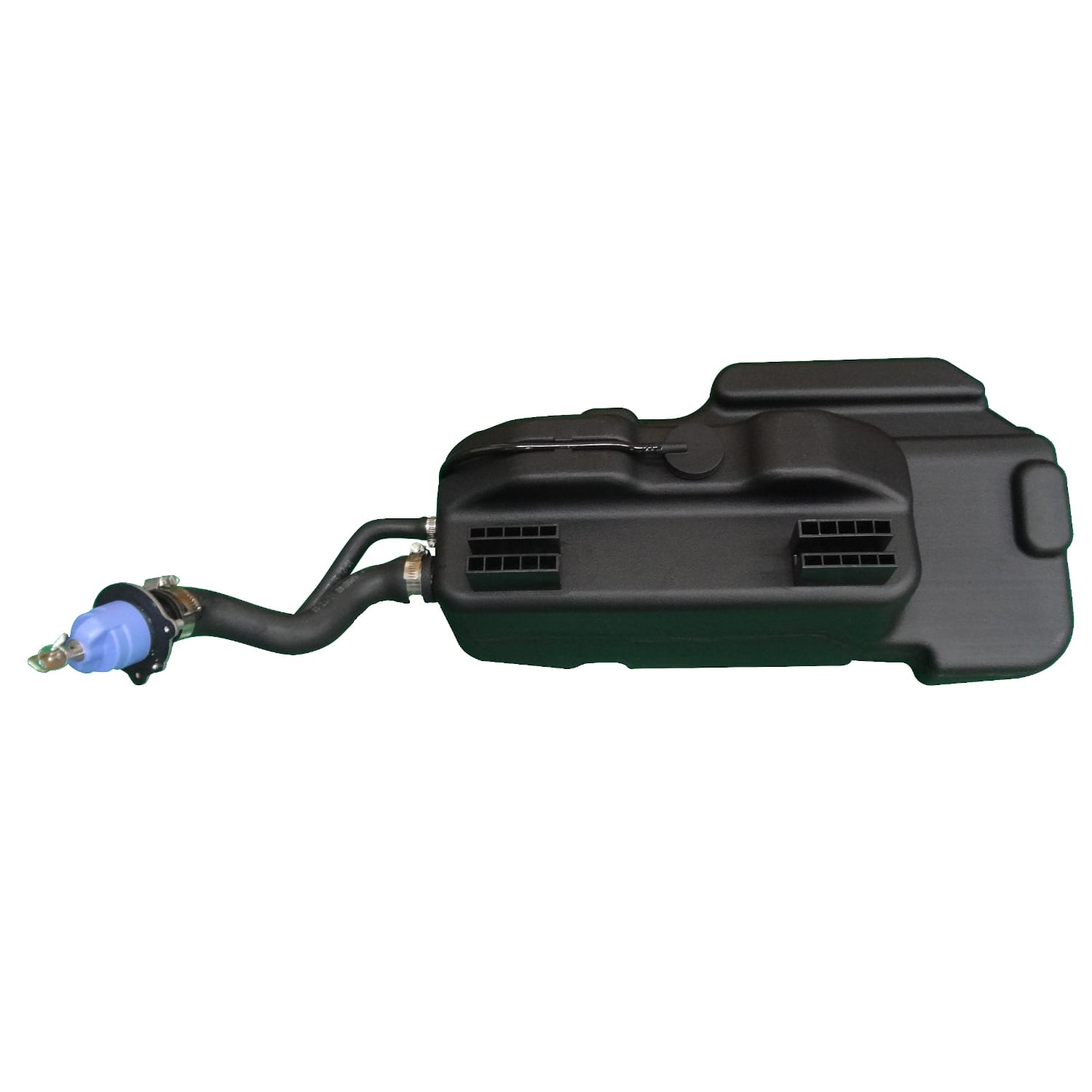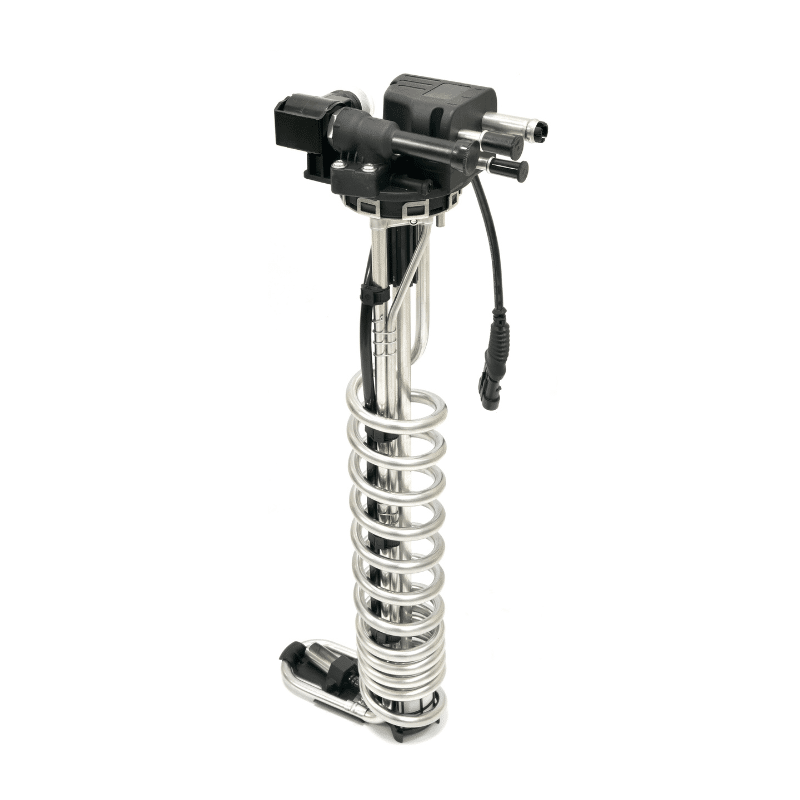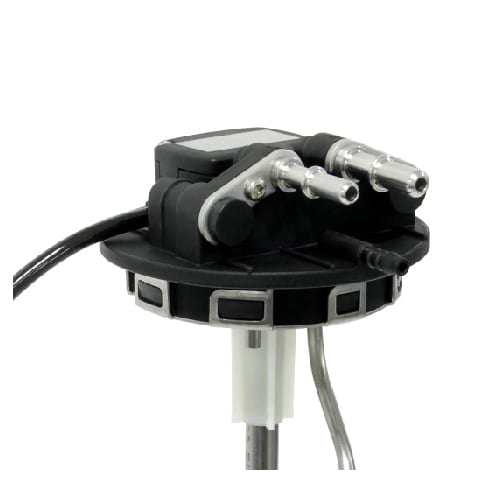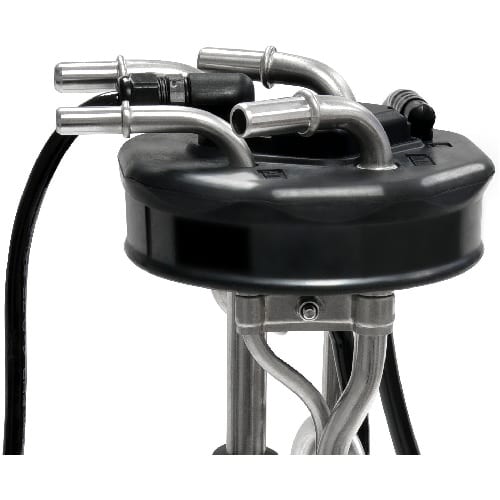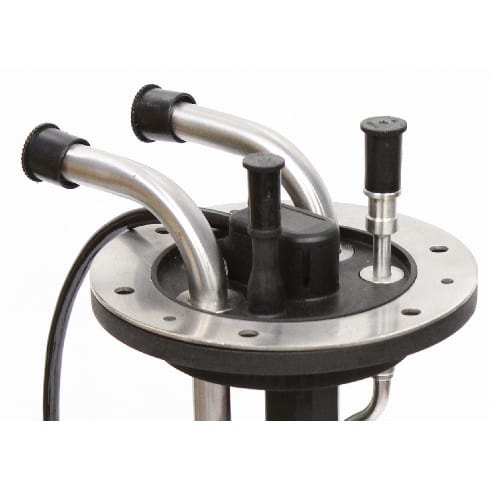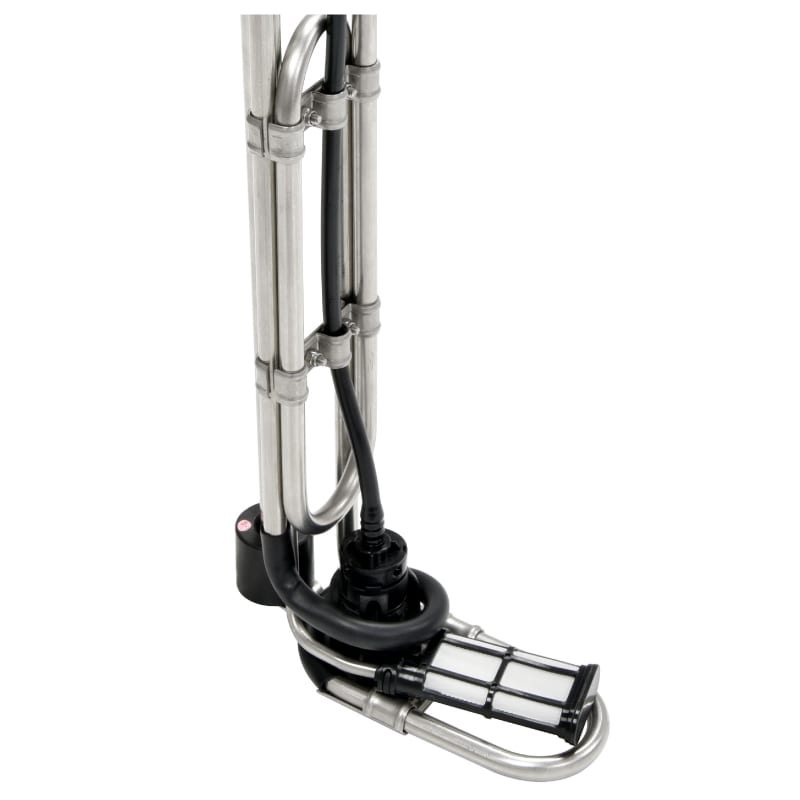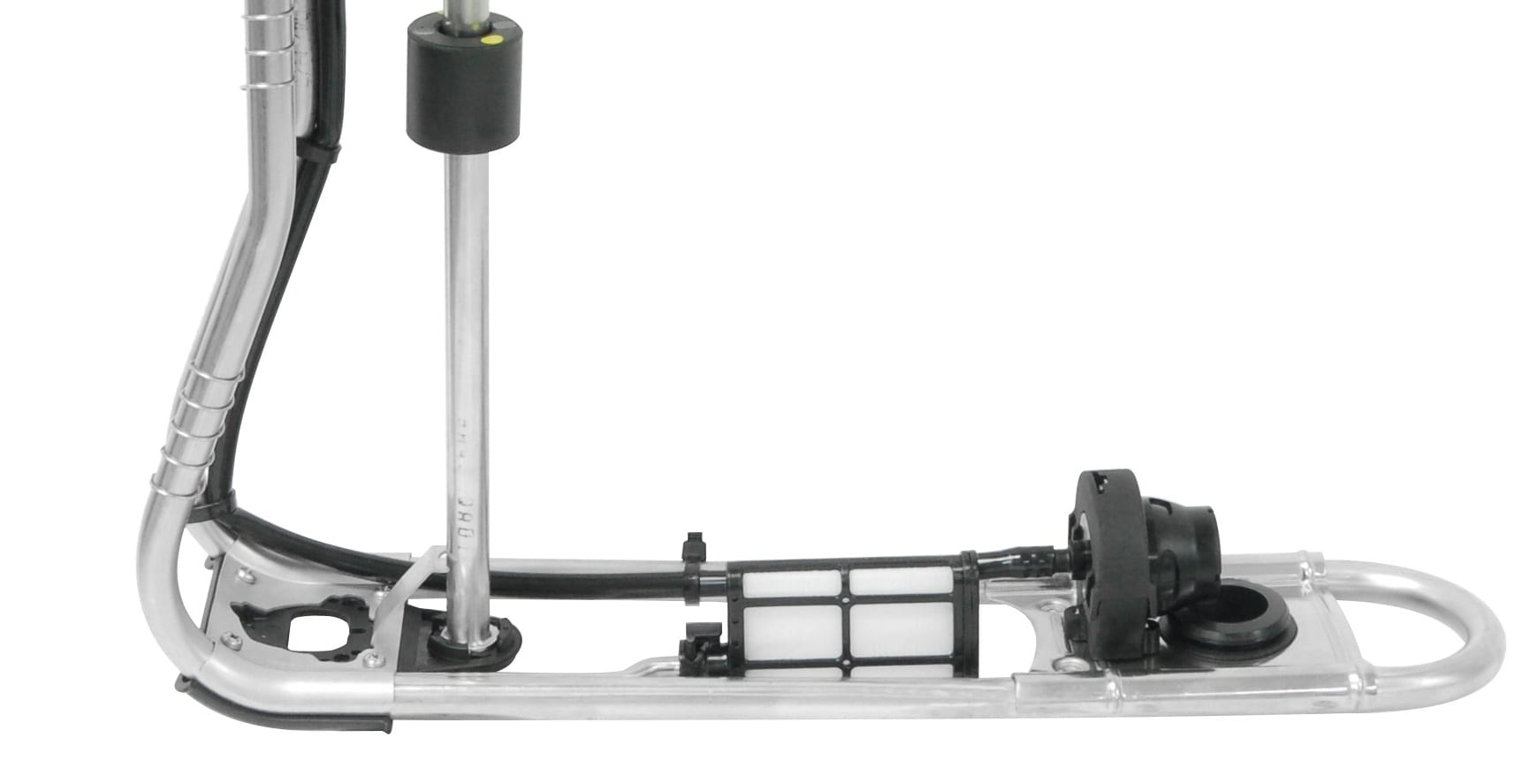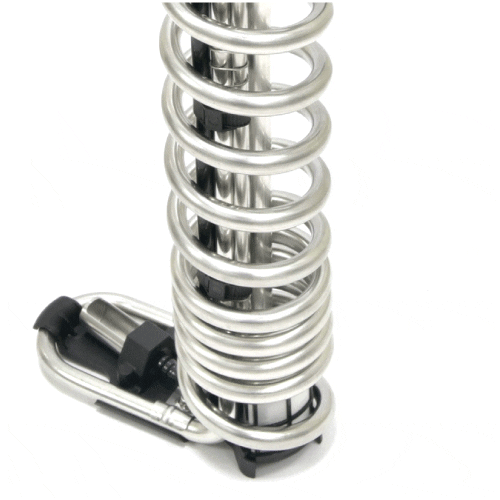Exhaust Aftertreatment
International standards call for highly effective exhaust after-treatment systems in order to mitigate the environmental impact of diesel engine emissions globally. The Selective Catalytic Reduction (SCR) system is one of the exhaust after-treatment systems adopted by vehicle and engine manufacturers to reduce emissions pollutants such as NOx (generic term for NO, nitric oxide, and NO2, nitrogen dioxide) from the engine exhaust gas.
Diesel Exhaust Fluid (DEF), or AdBlue, is a 32.5% urea, or aqueous ammonia solution, that is injected into the SCR system to convert NOx into harmless H2O and N2.
Since 2003, KUS has been working with global exhaust after-treatment system integrators, vehicle and engine OEMs to design and manufacture components for the SCR system in accordance with ISO 22241 standards in order to meet emission laws and regulations.
DEF Tank Assembly Solutions
KUS is in the unique position of manufacturing both the DEF Tank and DEF Level Senders. As a result, we are able to engineer, design, and validate DEF Tanks and Level Senders concurrently.
KUS’s engineering and design team has more than 10 years of experience designing custom DEF Tank and Total Tank Assemblies for SCR system integrators, vehicle OEMs, and engine OEMs across the Americas, Europe, and Asia. The Total Tank Assemblies are engineered and designed for the SCR systems according to ISO 22241 standards.
Standard DEF Tank Assembly
For a more economical DEF tank option, KUS offers several standard DEF tank options in both landscape and portrait configurations. Sizes available include: 5 gallon, 10 gallon, and 15 gallon. There are no upfront costs for the customer as all tooling and validation has already been completed. These assemblies are engineered to meet the common requirements for various markets. Lead times are reduced to the length of time that it takes for the customer to review the assembly.
Benefits of a Standard DEF Tank Assembly
- Reduce tooling cost and time. Save time and money on design, validation, and tooling stages.
- Shorter lead times. With an industry standard tank size, products are readily available and can be provided as soon as a customer confirms compatibility with their vehicle.
- Simplified design requirements. With a standard tank design that’s been validated and tested, there’s no need for back and forth communications to finalize tank specs.
Custom DEF Tank Assembly
You can also customize DEF tanks to get the most out of your equipment. By using a custom DEF tank, your engineering team will have greater flexibility when designing products. There are several ways to customize DEF tanks. These options include:
- Creating DEF tanks in exact dimensions with high-density polyethylene (HDPE) using a blow molding process.
- Stress-testing the DEF tank to your specifications.
- Building specialized signal systems. These can be analog or digital systems for easier readings at a glance.
- Aesthetic changes. These changes can include custom colors, fonts, materials, or wire colorings. These changes can increase brand awareness.
- Optional inclusion of a DEF Level Sender to measure the temperature and fluid level in the tank.
- Optional inclusion of a sensor which measures the quality or concentration level of the urea solution to ensure proper operation of the SCR system.
DEF Level Sensors
As one of the most capable designers and manufacturers of DEF Level Sending Units, KUS understands the importance of the level sending unit’s reliability, accuracy, and durability.
Our DEF Level Sending Units provide liquid level reading and temperature measurement functions, while also offering a heating function that utilizes the engine’s coolant. The system can also be formatted to include a urea quality sensor to measure the concentration of the urea solution. This ensures the proper operation of the SCR system.
When selecting the most appropriate DEF Level Sending Unit for your application, there are two design functions that should be considered: the mount style and coolant heading tube body form factor.
Mounting Head Options
Flange and Bolt Mount
The Flange and Bolt Mount level sender is mounted by its flange to the tank using bolts or screws. This style of mount provides an easy mounting option for OEMs, tank manufacturers, and aftertreatment system integrators due to the fact that no specialized tools are required for installation.
Heating Tube Body Forms
DEF Quality Sensor
DEF Level Senders equipped with Urea Quality Sensor were developed for the increasing stringent emissions laws and regulations.
The Urea Quality Sensor is used to accurately monitor the concentration and quality of the DEF solution, and alert the user if the solution deviates from the acceptable concentration range or if there are any contaminants in the DEF tank. DEF’s concentration is extremely important in enabling the SCR system to be able to perform effectively and accurately according to its specification.
Out of the various concentration/quality sensors on the market, KUS prides itself on quality performance and a robust design. Therefore, the KUS Urea Quality Sensors all consist of proven, in-house designed and manufactured Ultrasonic technologies, in order to best fit all applications and provide excellence to our customers.
Ultrasonic
Ultrasonic wave will travel and propagate through different medium and concentration of liquid at different speed. By using a fixed distance, and calculate the time it takes for the ultrasound wave to make a round-trip in the DEF, we can determine the concentration of the DEF solution.


